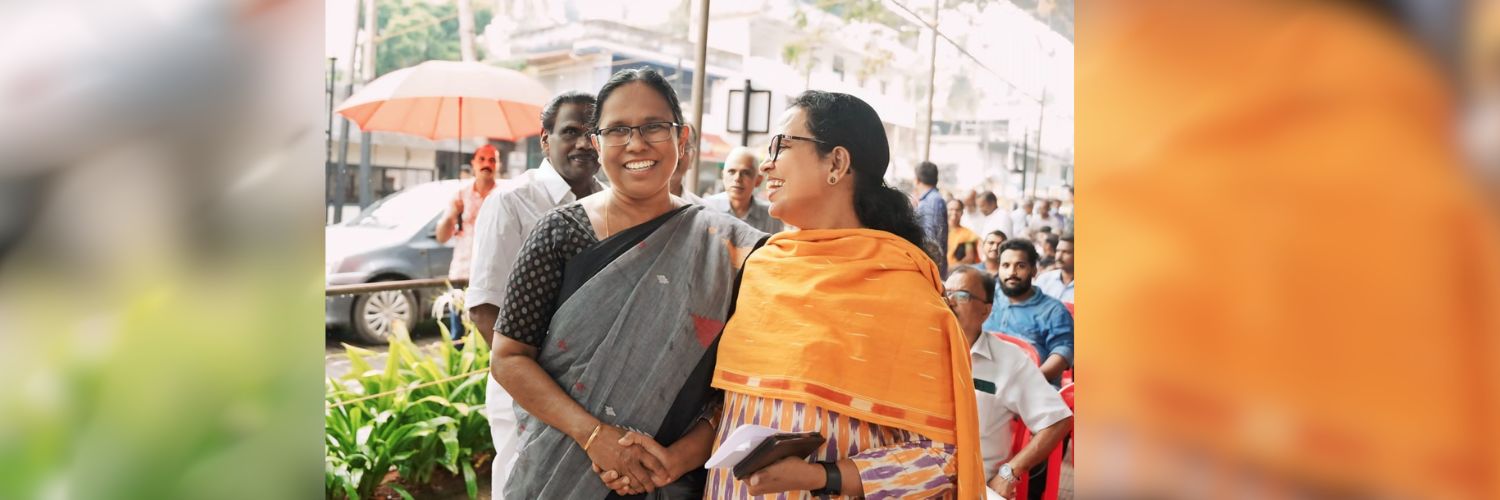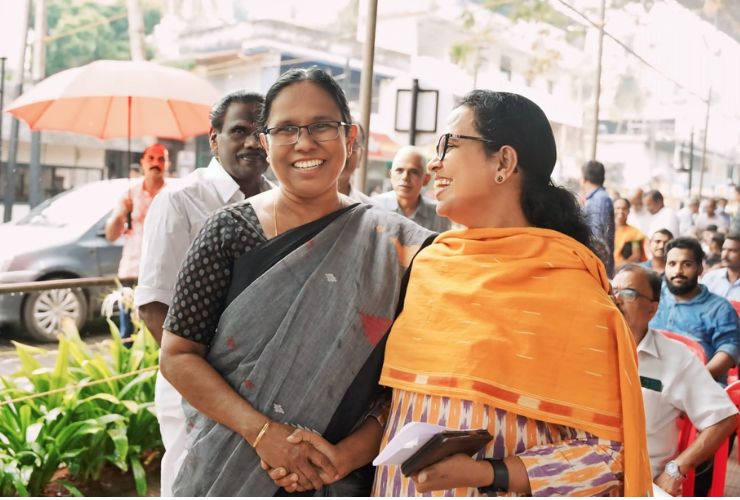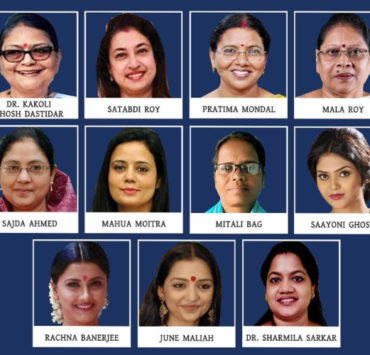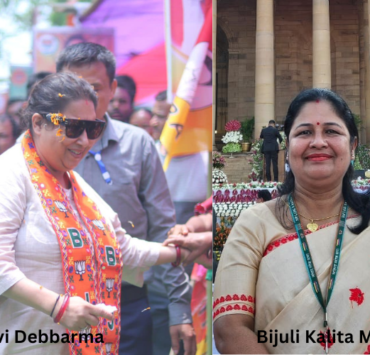
By Sarita Mohanan Bhama

Kerala may not have sent any women to Parliament but its women leaders are showing solidarity with one another
It’s a bit of an ‘oops’ moment for the long line of academics who have showcased Kerala’s women-propelled welfare climb. The people of the state failed to vote a single woman to the 18th Lok Sabha. Ironically, women voters account for 51.6% of the electorate in Kerala.
Both the CPI(M)-led Left Democratic Front (LDF) and Congress-led United Democratic Front (UDF) in Kerala have been vociferous in their ‘Ayes’ for the Women’s Reservation Bill, but neither front fielded enough women to reach the proposed 33% women candidates in the first election after the legislation was passed. Kerala sends 20 MPs to the Lok Sabha.
Social scientists from the 1990s to the present day, including Robin Jeffrey (Politics, Women & Well-Being: How Kerala Became A Model, 1992) and Tirthankar Roy and K Ravi Raman (Kerala, 1956 to the Present: India’s Miracle State, 2024) may have hailed Kerala’s progressive and gender-friendly policies, which have led to economic development, but patriarchy prevailed in the allocation of constituencies with less winnability to women candidates.
Many of the nine women leaders who contested the election had to endure gender-based mudslinging and trolling, irrespective of whether they were from the Left, Congress or National Democratic Alliance (NDA), old or young. CPI(M) had pitched two women (among its 15 candidates), CPI one woman (among its four candidates) and Congress one (out of 15 candidates). NDA had five women candidates among the 20 seats it contested.
Sadly, not one of these women won, not even for CPI(M)’s K.K. Shailaja, whose covid management acumen had gained international attention. Senior leaders Annie Raja (CPI) and Sobha Surendran (BJP) managed to whip up public interest, though they couldn’t shatter the electoral glass ceiling.
It was after the counting of votes that the gender story in Kerala yielded a happy insight. K.K. Rema, MLA and chief campaigner for K.K. Shailaja’s rival for the Vadakara constituency, Shafi Parambil (Congress), had a sunshine word or two for Shailaja. After the young Congress candidate Parambil defeated Shailaja, Rema posted a photo of herself on Facebook holding hands with Shailaja, subtly hinting at the way the state’s former health minister was sidelined by the second Pinarayi Cabinet, despite her spectacular tenure.
Rema, who had made an avenging-angel entry into politics and later to the Kerala Assembly as Vadakara MLA, after her husband and Revolutionary Marxist Party (RMP) leader T.P. Chandrasekhar was lynched allegedly by CPI(M) members, played a dynamic role in Parambil’s victory. Yet she could not but feel for the senior woman in her time of defeat. “Dear (Shailaja) teacher, move on, without losing your smile,” she wrote, “but do let go of all the wounds”.
The picture of the two women leaders in Kerala, standing across the political fence, spontaneously holding hands after a bitter electoral battle sends out a signal of grace about female bonding. If you look closely enough, the gesture also mocks the patriarchy entrenched in every political party, which is too insecure to allow bright women a chance at power.
Sarita Mohanan Bhama has been a journalist, who worked in publications like The Statesman, Malayala Manorama and The Financial Express. She’s been writing for over 40 years. Her areas of interest are economy, culture and social change.
Edited by Shalini Umachandran




